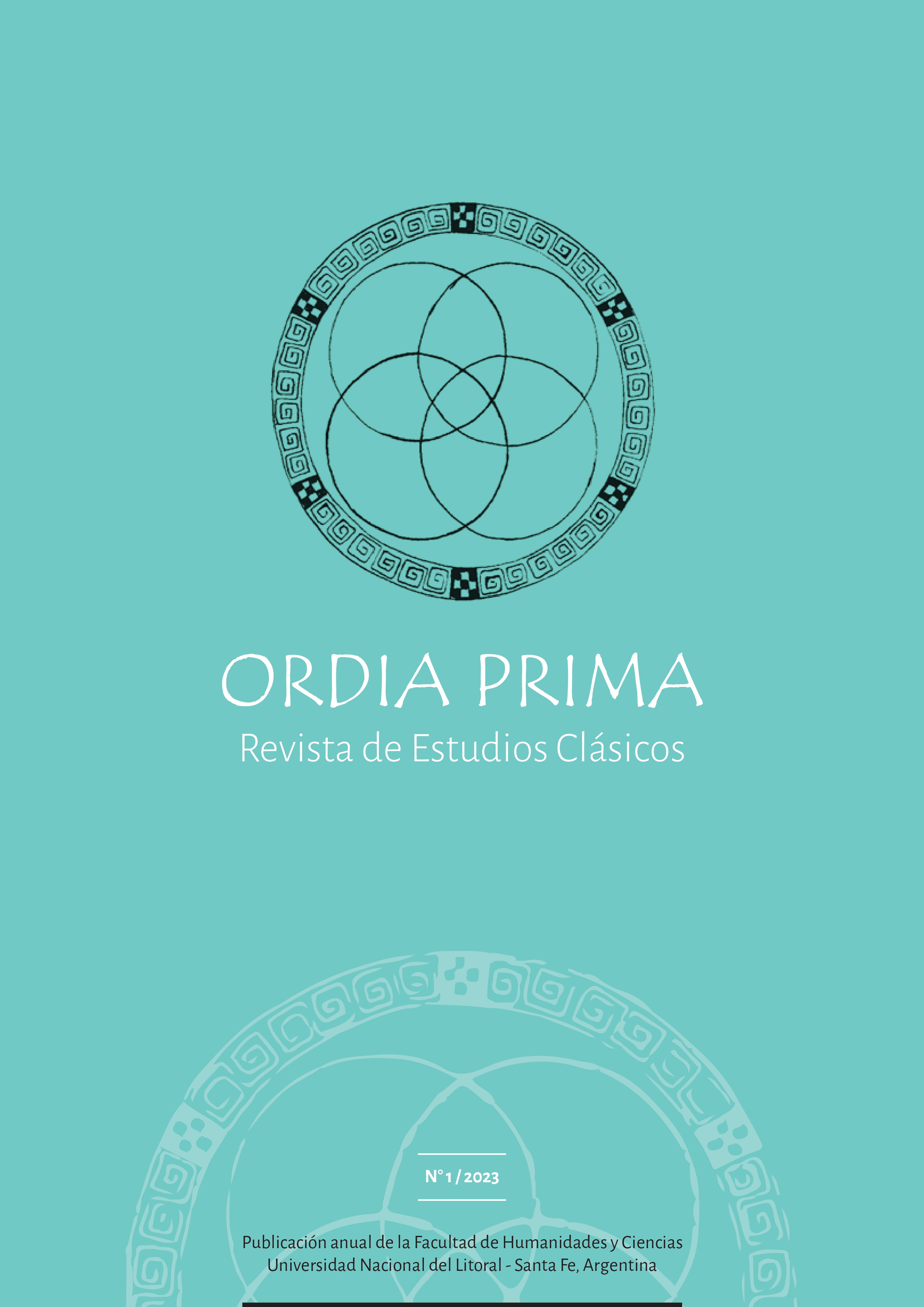Mélange et sexualité dans les cités platoniciennes. (La dimension politique de la sexualité dans les cités platoniciennes)
DOI:
https://doi.org/10.14409/op.2023.1.e0012Keywords:
Sexualité, République, Lois, Platon, Sexuality, Republic, Laws, PlatoAbstract
The management of sexuality in the Republic and in the Laws is one of the aspects of the Aristotelian point of view, which states that Magnesia is a slightly modified version of the fictional city described in the Republic. This idea recurs in the modern era by the means of intense debates. One of the most outspoken commentators was probably K. Popper, who wrote in the first volume of The Open Society and its Enemies that the slight variations introduced in Magnesia were motivated by the Platonician hope of achieving his ancient aim. Apart from some insignificant details, the questions treated in the Laws would rather be parallel or complementary to the first πολιτείᾳ.
Considering that the variations introduced in Magnesia are the consequence of a significant change of position from one dialogue to the other, this study will focus on the analysis of arguments on the management of sexuality and the mixing of social classes in the Republic and the Laws. Assuming that the purposes are the same in the two cities, we aim to show that the quality of the means through which the Athenian Stranger tries to unite the Magnesian city reveals his will to build a political constitution more adapted to the citizens’ nature. A constitution based on the conscience that the political authority can be limited when facing the restraining powers of some trends.
References
Amyot, Jacques (1937). Plutarque, Vie des hommes illustres, vol. 1 (trad. de Jacques Amyot). Gallimard.
Balaudé, Jean–François (1995). Le triptyque République, Politique, Lois: perspectives. En D’une cité possible. Sur les Lois de Platon (pp. 29–56). Publications du département de philosophie de Paris x–Nanterre.
Bertrand, Jean–Marié (1998). Du nid au pilori. Le clair et l’obscur dans les cités des Magnètes platoniciens. Ktèma, 23, 423–430.
——— (1999). De l’écriture à l’oralité. Lectures des Lois de Platon. Publications de la Sorbonne.
——— (2006). La cité grecque est soluble dans l’eau chaude. Études platoniciennes, Vol. II, 203–206.
Calame, Claude (1996). L’éros dans la Grèce antique. Éditions Belin.
Campese, Silvia, Canino, Lucia Loredana (1998). La genesi della polis. En Vegetti, Mario (Ed.) (Trad.) La Repubblica/Platone (pp. 285–339). Bibliopolis.
De Romilly, Jacqueline (Éd.) (Trad.) (1964). Thucydide, La guerre du Péloponnèse. Les Belles Lettres.
Dixsaut, Monique (1995). Une politique conforme à la nature. En Rowe, Christopher (Ed.) Reading the Statesman: Proceedings of the III Symposium Platonicum (pp. 253–373). Sankt Agustin: Academia Verlag.
Fortembaugh, William (1975). Plato: temperament and eugenic policy. Arethusa, 8, 283–305.
Grube, Georges Maximilien Antoine (1927). Marriage laws in Plato’s Republic. Classical Quarterly, 21, 95–99.
Harrison, Alick Robin Walsham (1968). The law of Athens: the family and property. The Clarendon Press.
Héritier, François (1995). Les deux sœurs et leur mère. Odile Jacob.
Joly, Henry (1994). Le renversement platonicien, logos, épistémè, polis. Vrin.
Jouët–Pastré, Emanuelle (2005). La sexualité dans les Lois de Platon ou l’échec de la rationalité. Kairos, 25, 7–19.
Lisi, Francisco (2000). Les fondements philosophiques du nomos dans les Lois. Revue philosophique de la France et de l’étranger, 1, 57–82.
Motte, André (1989). Platon et la dimension religieuse de la procréation. Kernos 2, 157–173.
Mouze, Létitia (2005). Le législateur et le poète. Une interprétation des Lois de Platon. Presses Universitaires du Septentrion.
Naddaf, Gérard (1992). L’origine et l’évolution du concept grec de phusis. The Edwin Mellen Press.
Osborne, Robin (1985). Law in action in Classical Athens. JHS, 105, 40–53.
Rosen, Stanley (2004). Le Politique de Platon: tisser la cité. Vrin.
Sandford, Stella (2005). Thinking sex politically: rethinking ‘sex’ in Plato’s Republic. South Atlantic Quarterly, 104(4), 613–630.
Vérilhac, Anne–Marie et Claude Vial (1998). Le mariage grec au VIe siècle AV. J.–C. à l’époque d’Auguste. De Boccard.
Veyne, Paul (2005). Sexe et pouvoir à Rome. Éditions Tallandier.
Winkler, John Jack (2005), Désir et contrainte en Grèce ancienne. Epel.
Published
How to Cite
Issue
Section
License
Copyright (c) 2023 María del Pilar Montoya

This work is licensed under a Creative Commons Attribution-NonCommercial-ShareAlike 4.0 International License.



